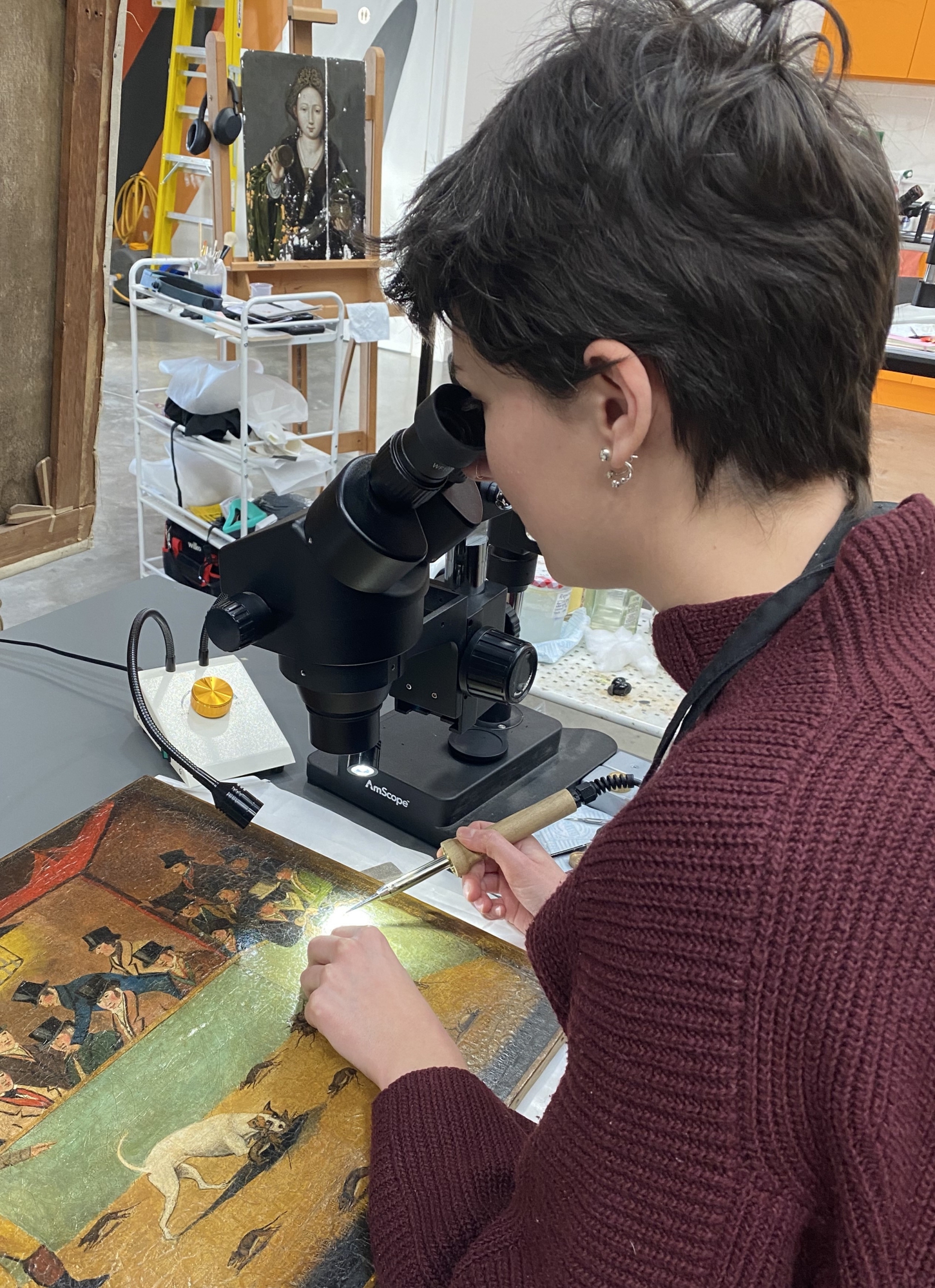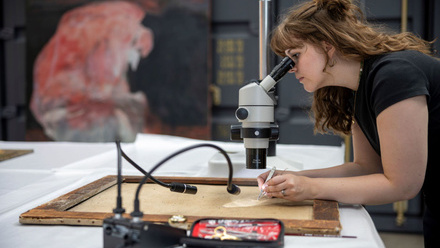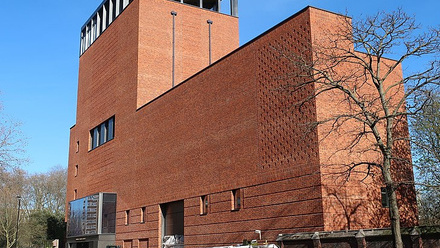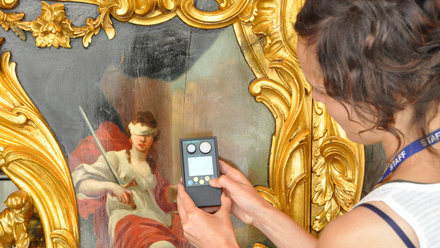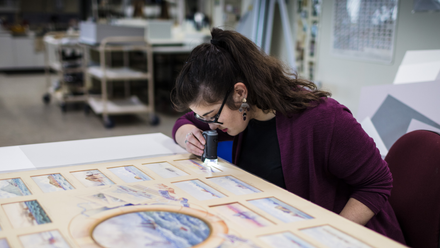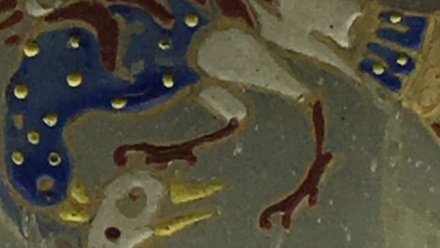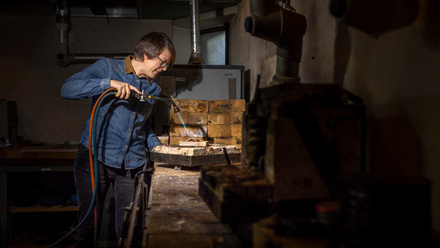Icon's Student Mentor Programme is offering 25 students or recent graduates the chance for 1-to-1 support from an experienced Icon conservator. Mentor Zoë Miller and mentee Hayley Livingstone, who were paired in 2021, discuss their experience.
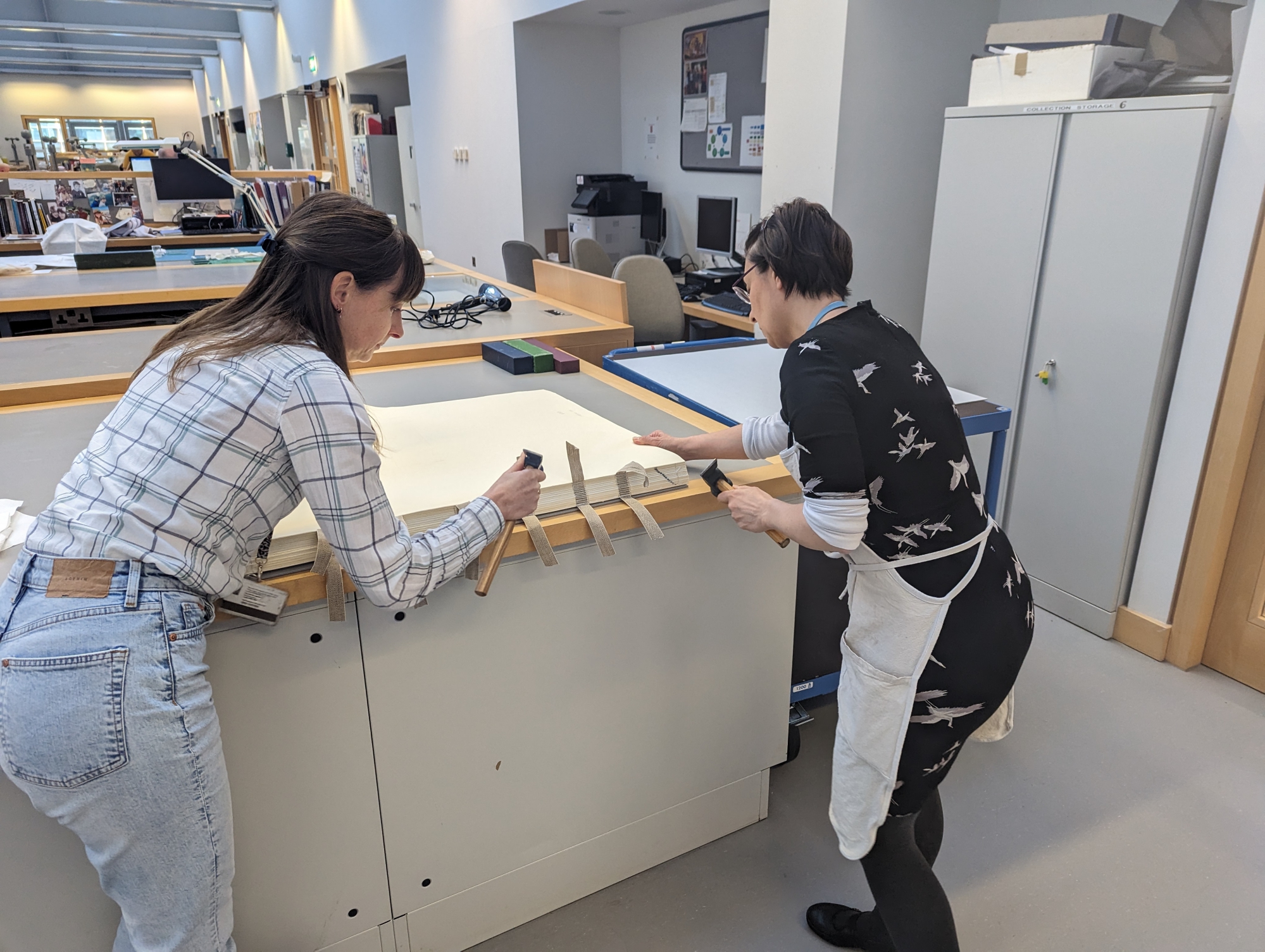
The Conservation profession has relied on collaboration between higher education institutions, places of work, and Icon to support students and new graduates to gain the skills and experience needed to enter the world of work.
We expect them to be ready to face the challenges of both the ethical and practical approaches to heritage collections as well as offer the soft skills of communication, influencing, decision-making, presentation, time management and even leadership to thrive in either private practice or a large institution.
We also want them to present confidently themselves in an interview with an innovative and extensive portfolio of work experience. No small ask!
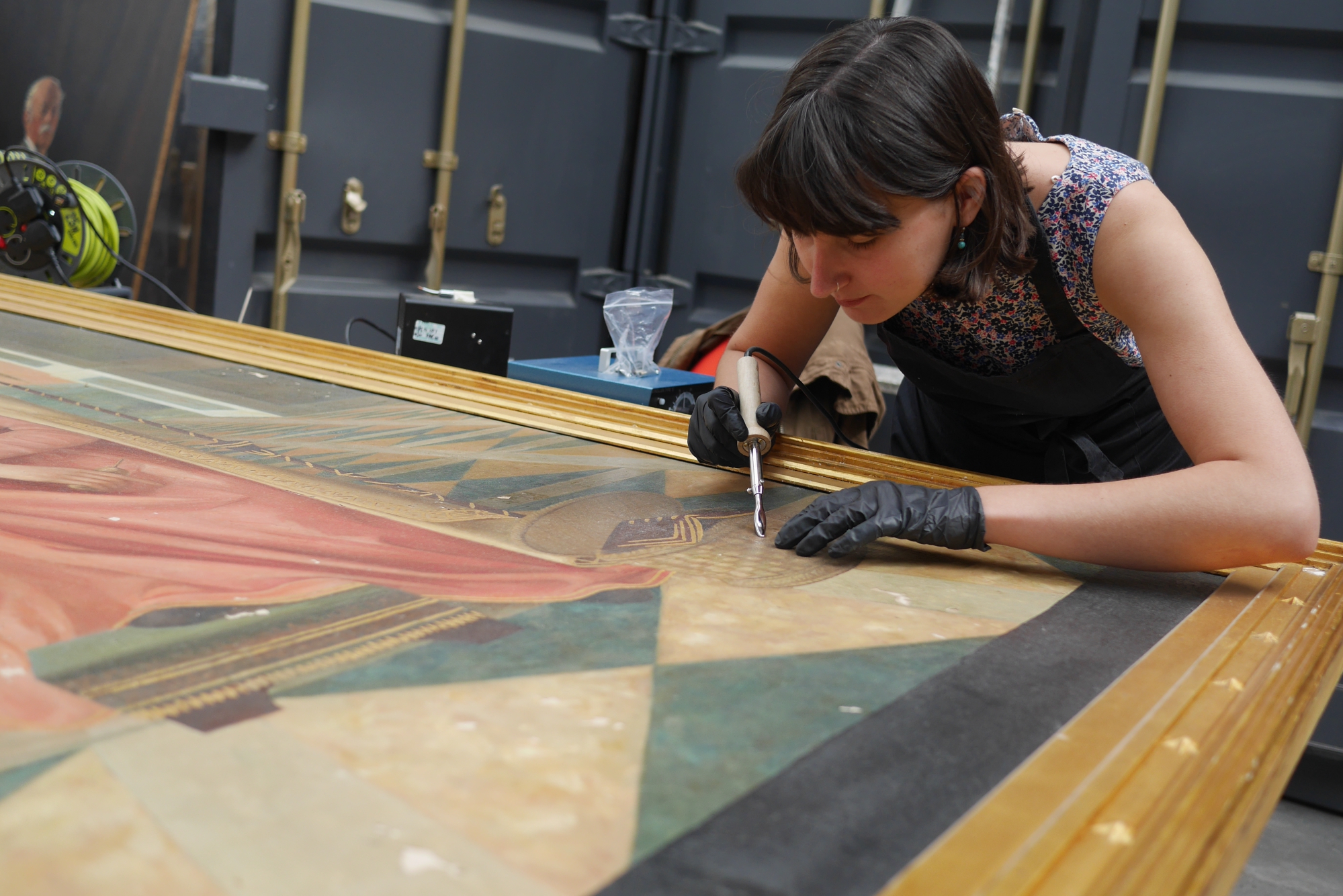
A combination of the global pandemic, ever-reducing resources in higher education and general underfunding in the heritage sector has meant that students of conservation may have had compromised learning and would benefit from the support and guidance of someone who has navigated these things and others more than ever.
Hayley Livingstone and Zoë Miller were partnered through Icon’s first student mentoring programme in 2021. Over the year that followed, they had monthly zoom conversations in which they learned a great deal about each other's experiences - in this case, working as a Conservation Team Leader at the British Library and as a student on the Conservation of Fine Art- Paintings course at Northumbria University.
Below, they introduce themselves and share some of the valuable discoveries they have made about each other's lived realities and some of the intricacies and challenges of being a conservator at different phases in their careers, at different ends of the UK.
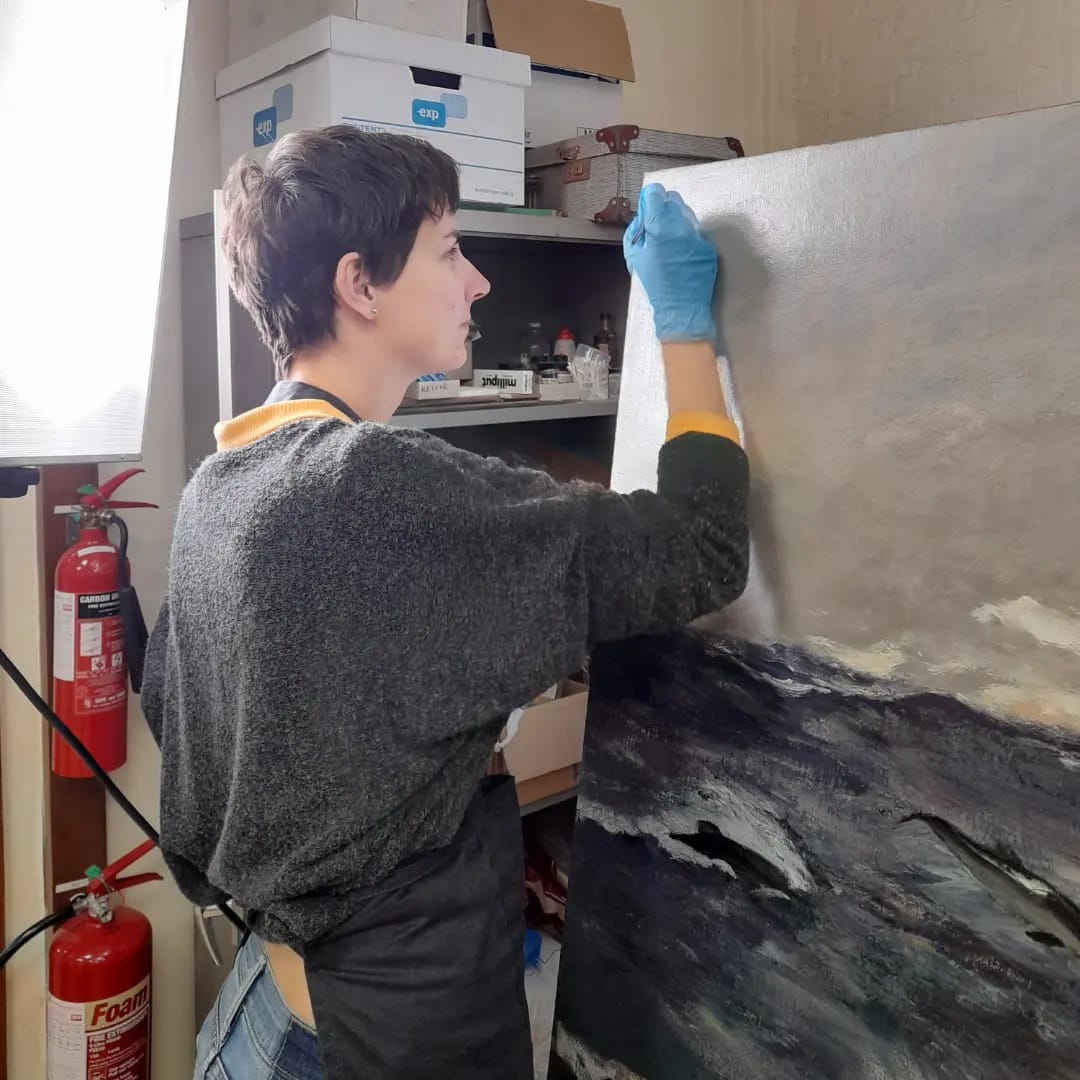
What's your conservation background?
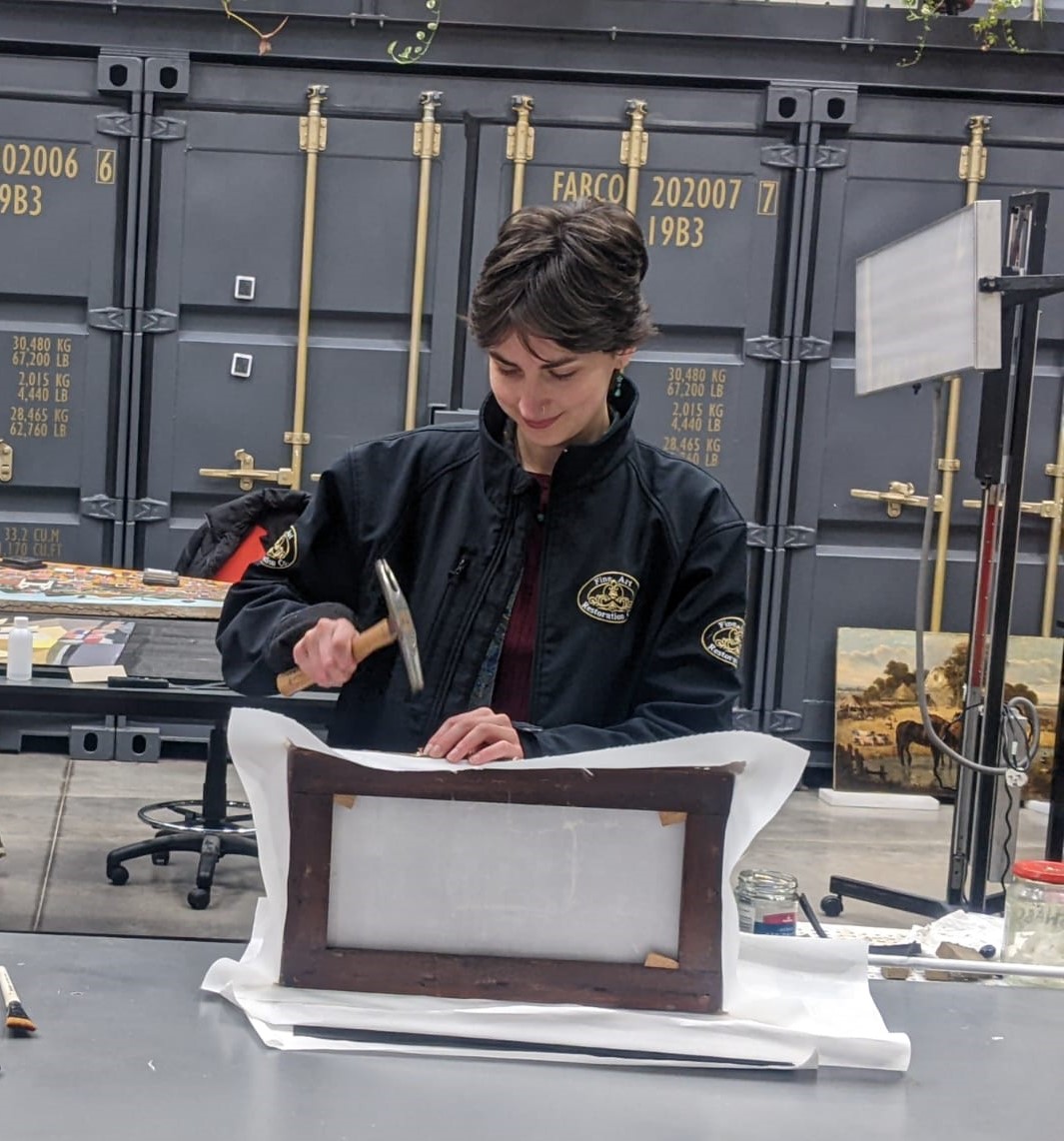
How have your different specialisms enable valuable discussion and learning?
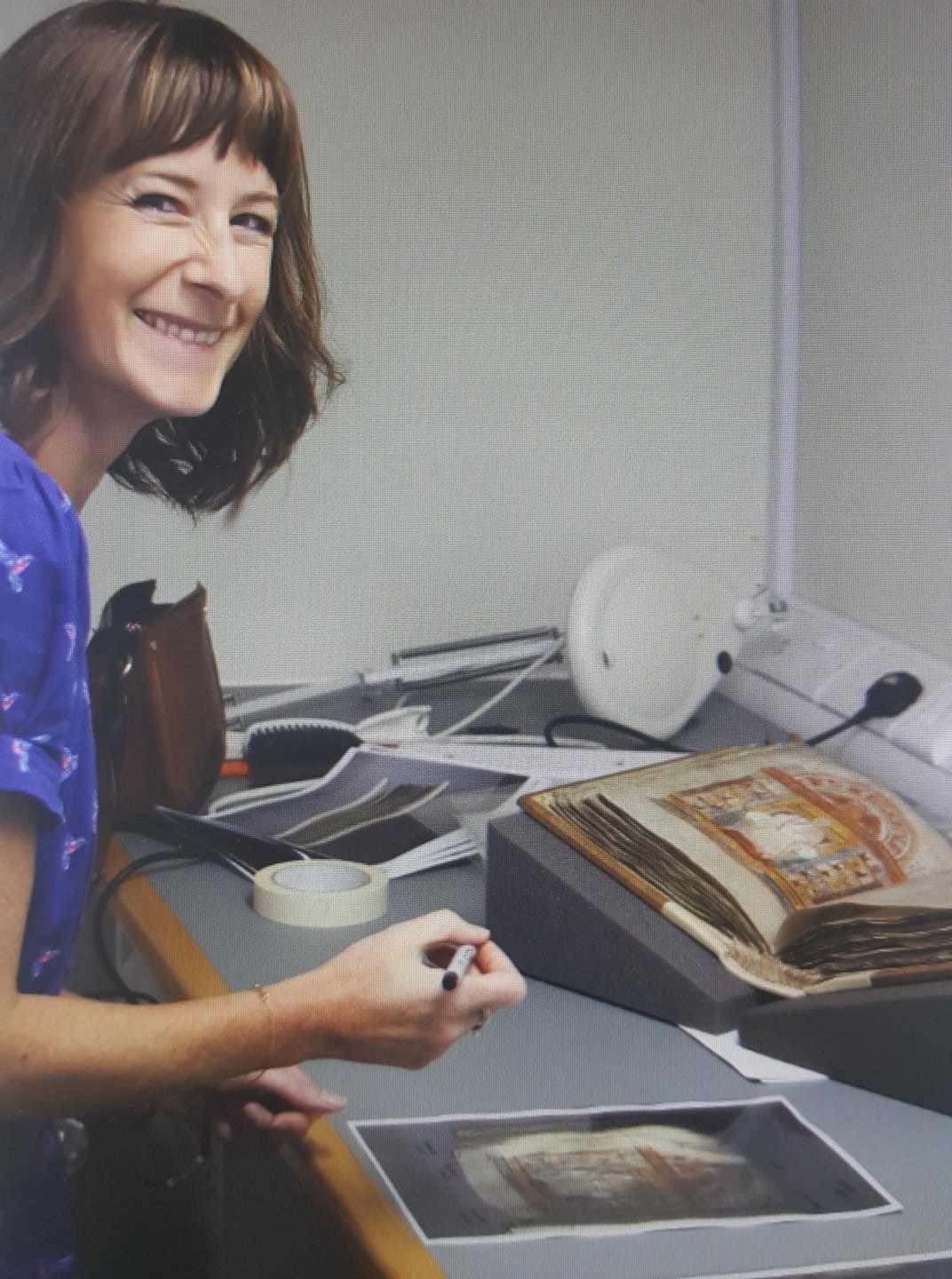
What's next for mentor and mentee?
